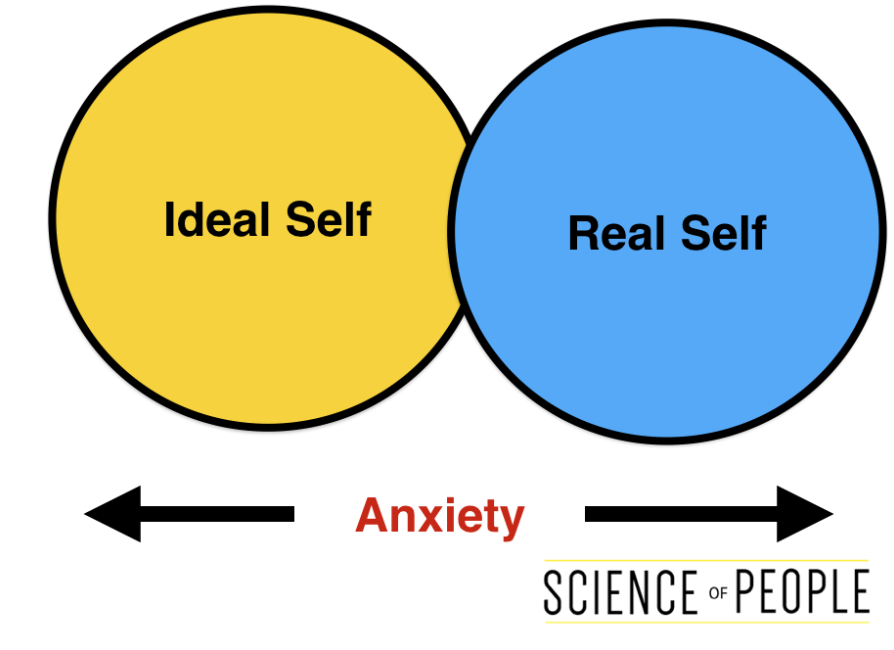The ideal self is the image that I wrote about in the opening paragraph. It’s the you – you wished you could be. The ideal self is created when our caregivers teach us that there is something wrong with our real self. Carl Rogers believed that for a person to achieve self-actualization they must be in a state of congruence. This means that self-actualization occurs when a person’s “ ideal self ” (i.e., who they would like to be) is congruent with their actual behavior (self-image). The actual self can be seen by others, but because we have no way of truly knowing how others view us, the actual self is our self-image. The actual self and the ideal self are two broad categories of self-concept. Self-concept refers to your awareness of yourself. It is the construct that negotiates these two selves. The study highlights the importance of self-concept and suggests that the actual and ideal self-congruence have a variable influence on the above variables. The results presented here also suggest that an applied scale may be useful for evaluating product concept and self-concept. Ideal Self: A Review of Self-Esteem Abstract This paper will serve as a review of the actual self vs. Ideal self and illustrate that discrepancies in behaviors associated with the need for positive self-esteem, the need for self-gratification and the consequences do exist.
The extent to which a person's ideals of themselves and their actual traits agree. A large discrepancy between the two can lead to psychological pain. It is that pain, in theory, that can lead an individual to seek treatment. It can be measured. The client sorts card describing their ideal selves and those describing the real self.
Related Psychology Terms
Abstract
Purpose
–
The purpose of this research is to investigate the extent to which actual and ideal self‐congruities (image) are associated with health club patronage, a conspicuous consumption situation. Previous studies which have examined the applicability of the image congruence hypothesis to consumer behavior have scarcely examined its effect in the services industry. An integrative model of self‐concept, self‐congruity and health club image provides the foundation for hypotheses development.
Design/methodology/approach
–A survey‐based methodology was employed in the current investigation, as paper‐and‐pencil surveys were administered on‐site at several local health clubs and an on‐line version of the questionnaire was made available to college students.
Findings
 –
– Consumers’ actual self‐image, rather than ideal self‐image, was more strongly associated with their perception of their health club's brand image and, thus, served as a stronger indicator of health club patronage.
Practical implications
–Health club members exhibited a greater tendency to match the image they currently held of themselves with the brand image of their patronized health club. Health clubs would do well to develop and promote a brand image that is aligned more closely with members’ actual self‐images rather than attempting to develop a brand image that correlates more strongly to members’ idealized self‐images.
Originality/value
Ideal Self And Actual Self
–The current investigation evidences the applicability of the image congruence hypothesis to a particular service product that has not been examined in prior image congruence studies.
Keywords
Citation
Abel, J.I., Buff, C.L. and O’Neill, J.C. (2013), 'Actual self‐concept versus ideal self‐concept: An examination of image congruence and consumers in the health club industry', Sport, Business and Management, Vol. 3 No. 1, pp. 78-96. https://doi.org/10.1108/20426781311316915
Publisher

 :
: Emerald Group Publishing Limited
Differentiate Ideal Self And Actual Self
Copyright © 2013, Emerald Group Publishing Limited
